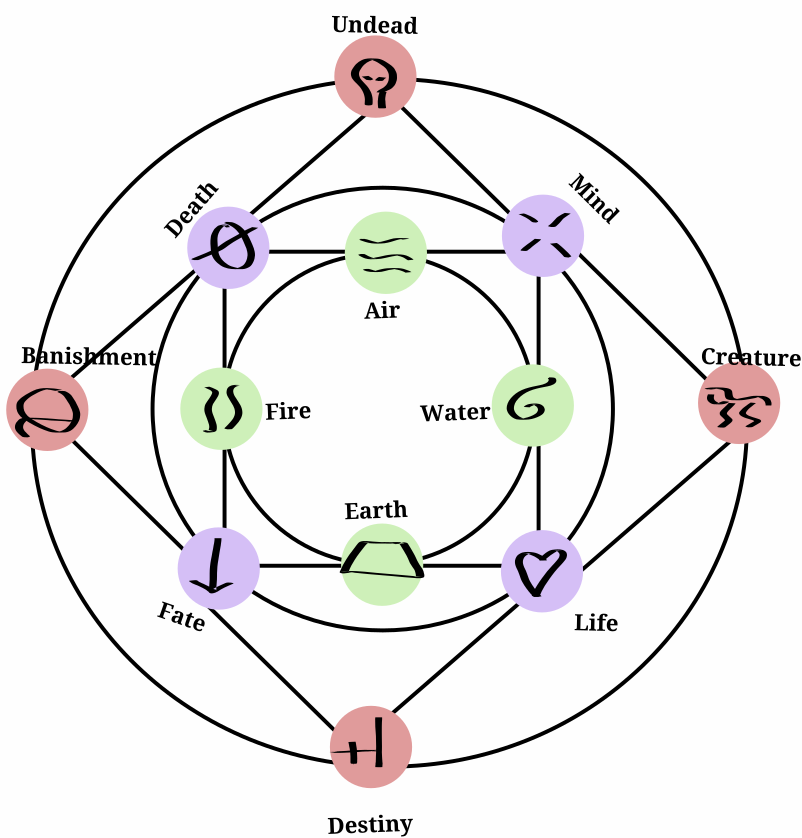I'm making a magic system for an NSR/ OSR RPG. It has a few things on the 'must have list'.
System Goals
- The system should have clear rules to make simple spells, so players can use simple spell lists, or make creative spells on-the-fly.
- Rules for making spells don't have to be simple, because players will mostly just interact with the lists of spells.
- The system must have an underlying structure, and internal logic that makes sense in a Dark Ages setting.
- It has to produce a sizeable chunk of standard fantasy RPG magic tropes, like necromancy, clairvoyance, et c.
- The world should still 'make sense' - if spells impact trade and economics, then that's okay, as long as the world remains coherent.
- You can't make lots of gold with magic, if gold is used as coinage.
The System So Far
- Each sphere is one of the four classical elements.
- Mages buy Magic Spheres as skills (rated 1-3).
- E.g. Air 1, Fire 2.
- The mage can target that element with two effects:
- Detect/ Identify (e.g. 'Detect water')
- Alter (e.g. 'alter fire' and make a torch explode)
- Spend 1 additional mana point to 'create' something with magic (e.g. 'Create rock')
- Spend X additional mana to make the target 'bigger' (detect fire everywhere in a city, make all the air in the room noxious).
- Every sphere combination allows one additional target.
- Water + Earth lets you affect life, so you can 'alter life' (and give a cat wings) or 'create life' (and make thorny bushes grow).
- Every mechanic will have a standard effect, e.g.:
- If a spell can cripple someone, it will inflict a -1 penalty per Mana Point spent, to one Attribute.
- If a spell can grant the target Damage Resistance, it grants 1 per Mana Point spent.

The conceptual phase is taking a lot longer than I thought, and there's a lot of work to be done.
I like some of the oddities (fire and light will have to lumped in together - I think this makes sense).
Some of the oddities I don't like
- It has no teleportation magic.
- I don't want healing magic, but the chart is just screaming 'Water + Earth makes healing'.
And a lot of it needs to be conceptually tighter (the bottom left corner makes less sense than the top right corner).